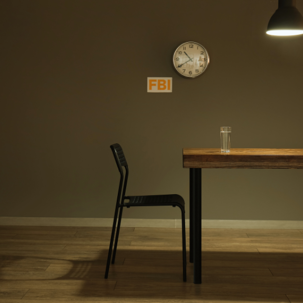The Fifth Amendment protects people accused of crimes in the United States from being coerced into confessing; in other words, this right is almost as old as the United States. Despite this, the Reid technique, which is, at best, a dishonest way of gathering evidence and, at worst, a form of psychological torture, has been prevalent in criminal investigations since the 1950s. It has been eliciting false confessions for its entire history, and yet its use continues unabated. Rather than asking open-ended questions to arrive at the truth, investigators follow a script, and based on your reactions to anything they say and do, they decide that you are guilty, and they do not let you go until you admit that you are guilty, even when you are not. The best way to avoid the injustice of the Reid technique is to contact a Texas criminal defense lawyer as soon as possible after your arrest.
The Reid Technique Should Be Illegal, So Consult a Lawyer Instead of Getting Drawn Into It
In 1955, John Reid, a polygraph expert in Nebraska, used a nine-step program of deception and psychological warfare to get a defendant to confess to killing his wife. The defendant recanted his confession the following day, but he was convicted anyway and spent years in prison before a court overturned his conviction. Reid went on to publish a book about the technique, and it has become prevalent in investigations by police departments and the FBI ever since. Never mind that if a prosecutor questioned a witness this way in court, the judge would shut it down faster than you can say, “due process.”
The Reid technique begins with the investigator describing the crime, then trying to build a rapport with you, and finally, doing anything and everything to get you to confess. If you fidget, it means that you are guilty. If you cry, you are guilty. If you refuse to answer, you are guilty. It is like the legitimate practice in which you have the right to remain silent because anything you say can and will be used against you, except without the “right to remain silent” part. The Reid technique has produced many false confessions, especially from young and emotionally vulnerable defendants. Meanwhile, defendants who have been through the criminal justice system tend to be uncooperative, failing to offer information that could indicate their innocence or the guilt of someone else who actually committed the crime.
In other words, the Reid technique has nothing to do with justice and everything to do with the system trampling on the rights of defendants. The best way to avoid it is to not agree to be questioned until after you have spoken privately with a criminal defense lawyer. This is your right, no matter what the police say in the moment.
Contact the Law Office of Patrick J. McLain, PLLC About Criminal Defense Cases
A Dallas criminal defense lawyer can protect you against unfair interrogation strategies. Contact the Law Office of Patrick J. McLain, PLLC, in Dallas, Texas, to discuss your case.

